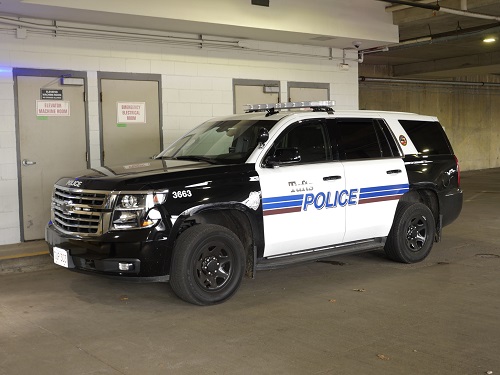
4.15.22 – Tufts Daily
Tufts will transition to a “hybrid” model of arming its university police department based on the recommendations of the Working Group on TUPD Arming, according to a March 29 message to the Tufts community from Executive Vice President and WGTA Chair Mike Howard. The working group recommended that authorities transition to a hybrid model of arming that specializes the response to the nature of the call. According to the group’s final report, the hybrid model will be coupled with a new “differential response” system. The Department of Public Safety will employ both armed officers and unarmed security professionals, and choose which to deploy depending on the particular public safety situation. Armed, uniformed officers will continue to respond to criminal complaints and “potentially dangerous situations,” while unarmed campus security officers will respond to “most routine calls for service,” such as lockouts and most wellness and alarm checks.
The report disclosed that TUPD currently employs just one community service officer on the Medford/Somerville campus and plans to hire more as it adapts to the new policing model. Across all of its campuses, Tufts currently employs nearly 50 armed officers.
The Working Group on TUPD Arming was formed last year as an offshoot of the Working Group on Campus Safety and Policing, which in turn was conceived as part of the Tufts as an Anti-Racist Institution Initiative. The goal of the WGTA was to examine more closely the issue of arming TUPD officers, using community-based data to determine what kind of structural changes might be necessary.
“This vision called for a renewed and broader understanding of campus safety that encompassed the physical, psychological, and emotional well-being of our entire community,” the report says.The working group was composed of representatives from across Tufts’ campuses, including faculty, students, staff, administrators, one police officer and Executive Director of Public Safety Yolanda Smith. Through campus forums, focus groups, a community survey on arming and an analysis of over 150,000 calls for service, the group concluded that transitioning to a differential response would be the best course of action.
“One theme that we heard consistently throughout our discussions with community members is support for flexibility in response, greater reliance on mental health resources, and low preference for greater involvement of municipal police,” Howard wrote in an email to the Daily. “Many of those who participated in our surveys and discussions indicated that they were interested in differential response, which allows for public safety responses to vary depending on the nature of the call, the campus, and other factors.”
According to the report, most of the community members surveyed said they would support a departure from TUPD’s current operational model, which keeps all officers armed. The data collected by the working group also showed that “less than half of the Tufts community currently feel that an armed TUPD makes the Tufts community more physically safe.” Support for an armed TUPD was reported to be lowest among undergraduates.
“One of the results of this approach will be fewer interactions between community members and armed officers, supporting the psychological and emotional well-being of our community and reducing potential trauma,” Howard wrote.
Smith emphasized that the transition to a differential response model represents just one step the university is taking to re-envision campus safety. Tufts has also hired a crisis intervention and threat assessment manager to manage some of the mental health components of public safety and made other structural changes to the system.
“We’re expanding the training that TUPD officers receive on issues related to mental health,” Smith wrote in an email to the Daily. “And we’ve introduced the option of contacting the counselor on call directly after hours by calling the number for Counseling and Mental Health Services without having to call dispatch.”
According to the report, officers will be required to complete a “specialized police curriculum” training that aims to decrease the risk of serious physical or psychological harm that may occur during an interaction between police officers and people with mental illness.
Groups like the Student Prison Education and Abolition Coalition have been pushing for the restructuring of TUPD for years.
“SPEAC works on investigating and trying to dismantle the ways that the carceral state manifests itself at Tufts,” Olivia Barker, a member of the Student Prison Education and Abolition Coalition, said. “Currently, our goal is to disarm the TUPD, but our overall goal is the abolition of the TUPD.”
According to the report, the working group decided that disarmament would not be an effective solution to community concerns because it would lead to an increased reliance on municipal police as the primary responders to many service calls.
“In these situations where municipal police would be primary responders, the university would give up control and decision-making authority,” the working group’s report said. “As a result, this model would subject Tufts community members to the policies and procedures of the municipal police as well as their respective protocols around detainment and arrest.”
Barker noted that while the transition to a hybrid model is a step in the right direction, it may not be enough for Tufts to maintain a safe and healthy anti-racist institution.
“It shows that the administration is thinking about disarmament, and they’re considering it,” Barker, a sophomore, said. “But this differential model is really an increasing of policing. They’re hiring campus safety officers, but they’re going to retain … the nearly 50 armed officers that they already have. So although it’s a step to be thinking about it, it is not towards abolition or justice.”
